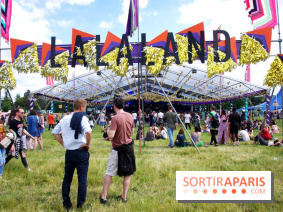The CDK-F presents the first edition of Paris Kurdish Cultural Festival or Festival culturel kurde de Paris hosted by the Conseil Démocratique Kurde en France (CDK-F or Kurdish Democratic Council in France), in partnership with the Fondation Danielle Mitterrand and taking place on April 25, 2020 at the Bataclan. It will be topped, on the last day, with a music show with Kurdish artists representing a rich variety of musical traditions and genres.
Program:
At the beginning of LaWje is to be found a musical exploration started in 2003 in the Hakkari region, on the borders of Kurdistan, at the border between Turkey, Iran and Iraq. From there was born an extremely rich repertoire influenced by the geographical environment and the history of this region where Kurds used to coexist with other ethnical groups, especially with Chaldo-Assyrians whose cultural influence remained.
LaWje is particularly inspired by the Kurdish oral tradition and the techniques passed down from centuries to centuries by dengbêj (bards) when it comes to using one’s voice and throat.
The band’s musical performances have been rewarded with an award for best soundtrack at the 33rd Istanbul Film Festival.
Yalda Abbasi comes from Khorassan, in North-East Iran where lives an impression Kurdish community that is said to have moved to this region in the 16th century. The young artist has been trained to singing by her mother who’s also a singer and she considers as her mentor. Her repertoire mainly includes folk songs and is based on field research within the Kurdish community in Khorassan.
The Kurdish singer has worked with many artists and won awards in several festivals.
In 2008, she plays in documentary movie “Tarkheh” directed by award-winning Mohammad Hassan Daman rewarded in domestic and foreign festivals.
Born in 1981 in Cizre, Hîvron – aka Nisret Îmîr – grew up in Batman (Turkish Kurdistan). He said he was encouraged to play music by his mother whose voice deeply inspired him. He learns playing the guitar pretty early and it will become “the instrument of his life”.
His love for his region and the political context he grew up in, marked by war and crushing, lead him to be fond of poetry and writing his own poems. The latter slowly become compositions he starts sharing in private circles.
His first album, “Hivron”, is out in 2006 and he releases a second album in 2009 ‘”Bablisok” that made him famous worldwide. In 2013, he releases a third album called “Mem û Zîn”.
Talented in a musical and poetic style of a great originality, he sings pain, joy, sadness, hatred and love.
Cemîl Qoçgîrî was born in 1980 in Duisburg (Germany) in a Kurdish Alevi family coming from the Dersim region. Alevism is considered as the continuation of the former systems of Anatolian-Mesopotamian believes, and especially zoroastrism.
Main instrument played by Cemîl Qoçgîrî, tembûr (lute with a long fingerboard) is at the heart of this musical heritage, not only as a music instrument, but also because it’s thought to be sacred by Alevis. Cemîl Qoçgîrî released in 2004 his first solo album “Aski-i Pervaz”.
In 2005, he travelled through Dersim to film the last living dervishes. This journey led to a musical documentary called “Sarraf”.
His second album “Heya – Songs of the Qizilbash” was released in 2007, his third record “Hiva Zeri – Golden Moon” was out in 2012 followed by a fourth album in 2015, “Tembur & Harp”. His latest album, “Zalâl” was released recently. It includes Zazaki songs, a now endangered Kurdish dialect.
Cemîl Qoçgîrî produces and arranges movie soundtracks and audio disc productions with various renown artists such as Aynur Dogan, Kinan Azmeh, Kayhan Kalhor, Tara Jaff…
His mastery of tembûr and his creative approach of new musical experiences gave him praises from his peers and people from all over the world.
Dates and Opening Time
On April 25th, 2020
Location
Bataclan
50 boulevard Voltaire
75011 Paris 11
Recommended age
From 6 to 77 years old
Official website
www.bataclan.fr















